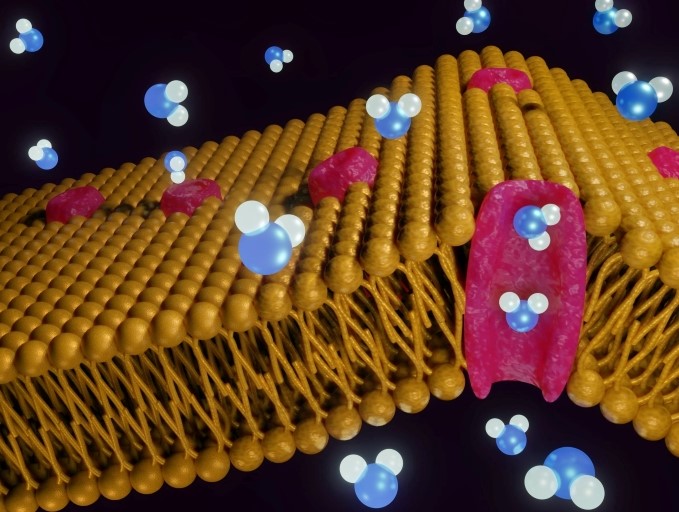Channels
Special Offers & Promotions
Aston Institute for Membrane Excellence receives £500,000 grant from the Wolfson Foundation for state-of-the-art microscope

- The Wolfson Foundation has awarded the funding for an ultrafast confocal spinning disc microscope
- The microscope can image biological processes at a speed of 2,000 frames per second for faster, higher-resolution images
- The team at Aston University will be led by Professor Roslyn Bill, who specialises in membrane proteins that form water channels, particularly in the brain
Aston Institute for Membrane Excellence (AIME) has received a £500,000 grant from the Wolfson Foundation to purchase an ultrafast confocal spinning disc microscope.
This instrument will accelerate AIME research, led by Professor Roslyn Bill, into treatments for dementia and other forms of cognitive decline.
An ultrafast spinning disc confocal microscope enables faster, higher-resolution images of biological processes than is currently possible at AIME. The instrument that will be bought with the grant has a scanning speed of 2,000 frames per second, the fastest in the world, using up to 1,000 laser beams as a light source.
In collaboration with the University of Oxford, the team at AIME, led by Professor Bill, are developing organ-on-a-chip formats which can be viewed under the microscope to image dynamic 3D membrane biology. This includes looking at brain cell membranes containing the water channel, aquaporin-4. Imaging the fast aquaporin-4-dependent processes at the blood-brain-barrier will allow the team to understand how they control the glymphatic clearance of proteins that cause dementia when they build up. More broadly, as the instrument vastly improves the speed of image acquisition, it will allow the investigation of a diversity of fundamental processes that occur on very rapid timescales in live cells.
In 2023, Professor Bill was awarded a €2.2m ERC Advanced Grant to understand how the movement of aquaporin-4 in brain cell membranes can help slow cognitive decline. Changes in the activity of aquaporin-4 and how they clear certain proteins from the brain have been linked to the development of dementia and the new microscope will provide vital insights and a better understanding of the disease and its progression.
The research team believes that the new spinning disc confocal microscope at Aston University will be the first outside London. It will be a unique resource in the Midlands and the wider region.
Professor Bill said:
“I am delighted to receive this funding from the Wolfson Foundation. This microscope will allow me to strengthen my collaborative partnership with Dr Mootaz Salman at the University of Oxford, who is a collaborator on my ERC Advanced Grant, and will accelerate its scientific progress.
“I am particularly grateful to Dan Wilkins and Christiane Dickens in the Aston University Development team for their expert support in securing this prestigious funding.”
Paul Ramsbottom, chief executive of the Wolfson Foundation, said:
“Reducing cognitive decline in dementia and related conditions would bring huge benefits to the individuals affected, as well as for wider society and the economy. The study of aquaporins at Aston has already led to some intriguing discoveries, and we are delighted to help the University continue their important research with this grant.”
The Wolfson Foundation is an independent charity with a focus on research and education. Its aim is to support civil society by investing in excellent projects in science, health, heritage, humanities and the arts.
Since it was established in 1955, some £1 billion (£2 billion in real terms) has been awarded to more than 14,000 projects throughout the UK, all on the basis of expert review.
About Aston University
For over a century, Aston University’s enduring purpose has been to make our world a better place through education, research and innovation, by enabling our students to succeed in work and life, and by supporting our communities to thrive economically, socially and culturally.
Aston University’s history has been intertwined with the history of Birmingham, a remarkable city that once was the heartland of the Industrial Revolution and the manufacturing powerhouse of the world.
Born out of the First Industrial Revolution, Aston University has a proud and distinct heritage dating back to our formation as the School of Metallurgy in 1875, the first UK College of Technology in 1951, gaining university status by Royal Charter in 1966, and becoming The Guardian University of the Year in 2020.
Building on our outstanding past, we are now defining our place and role in the Fourth Industrial Revolution (and beyond) within a rapidly changing world.
Media Partners


